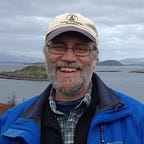Pollinators like bees, butterflies, birds, and bats are essential to our ecosystems. Most plants — including crops — need to be pollinated. Pollinators are crucial to the life of plants, biodiversity, and farming.
But many pollinators are endangered, in part due to exposure to pesticides. One culprit: neonicotinoids. Neonicotinoids affect the central nervous system of pollinators and cause paralysis and death.
A current loophole allows neonicotinoid-coated seeds to avoid regulation. And it is devastating our pollinators — particularly bees.
Earlier this year, the EPA released a statement saying that these types of pesticides are extremely harmful to many other endangered species and plants. Crops grown from these pesticide-coated seeds cover 150 million acres. This widespread problem affects pollinators and other endangered species across the country. We cannot count on greedy corporations to reign themselves in. The EPA must step in and close this loophole.
To top it off, not only are these neonicotinoid-coated seeds detrimental to pollinators and other species, but they also hurt communities. In the farming village of Mead, Nebraska (population 500), an ethanol plant was advertised as a recycling center where agricultural companies could dispose of excess supplies of pesticide-coated seeds. This provided the company with free supplies for ethanol fuel production and “a smelly, lime-green mash of fermented grains,” which was spread thick on farm fields as a “soil conditioner.” Bee colonies perished, birds and butterflies appeared disoriented, dogs grew ill, and people reported eye and throat irritation and nose bleeds.
This has gone on for far too long. Our people and our pollinators deserve better! The European Union has banned the outdoor use of neonicotinoids. The EPA can and should do more.
Urge the EPA to close this dangerous loophole, regulate neonicotinoid-coated seeds, and save our pollinators!
Let’s stand up for our pollinators and our planet.
